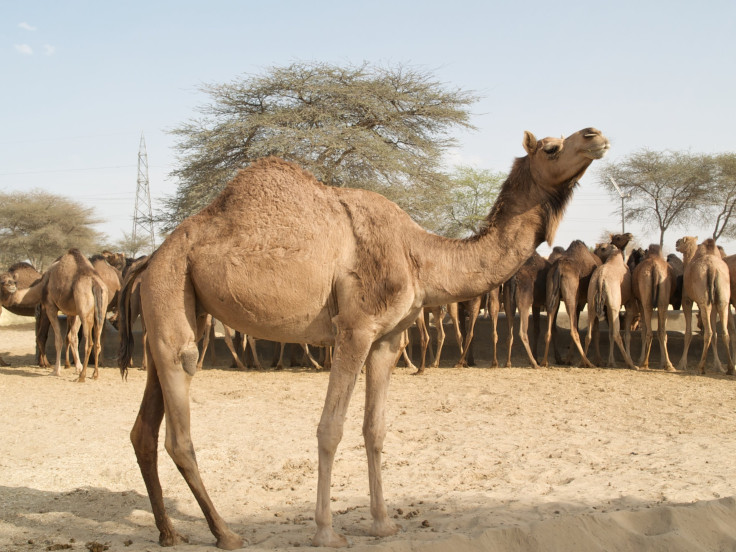Camel Milk Whole Foods Price: Where Can You Buy The 'Next Superfood' And How Much Will It Cost?

Camel milk could be the next big superfood, or at least, that's what a handful of creative entrepreneurs are betting on. As Americans turn to more milk alternatives like soy or almond versions, Walid Abdul-Wahab is looking to get into this lucrative market with the help of a few Amish co-ops and Whole Foods.
“At Desert Farms, our mission is to promote camel milk as nature’s most wholesome dairy beverage, so you can get over the hump when you need, naturally,” said Walid Abdul-Wahab, founder of Desert Farms, according to the company website.
Desert Farm camel milk products run between $18 and $40 dollars for a 16 oz. bottle, and are now sold in Whole Foods stores across California.
After starting out in small-scale sales through local festivals and mosques, he eventually got over the hump and went corporate. Though the United States lacks a great deal of traditional camel herders, Abdul-Wahab turned to another industrious group: the Amish.
Today, he operates eight farms across America, raising camels on open pastures and natural diets. Customers can see the animals on the website’s farm cam, or get recipes for dishes like a camel milk apple and avocado smoothie.
Though it may seem a bit unorthodox, the market opportunities may be great. The American milk industry is in a “crisis.” Average consumption has fallen almost 30 percent since 1975, as retail sales of dairy alternatives made from almonds, rice and coconut milk in the U.S. are now roughly $1.4 billion, which should reach $1.7 billion in 2016.
© Copyright IBTimes 2024. All rights reserved.












